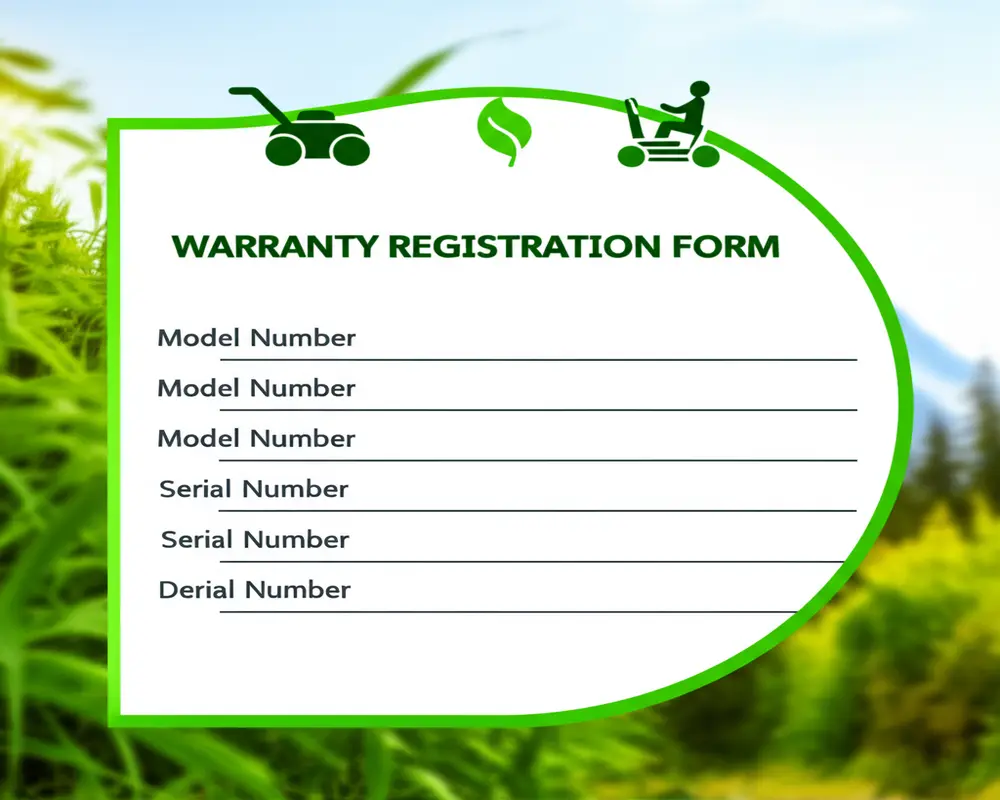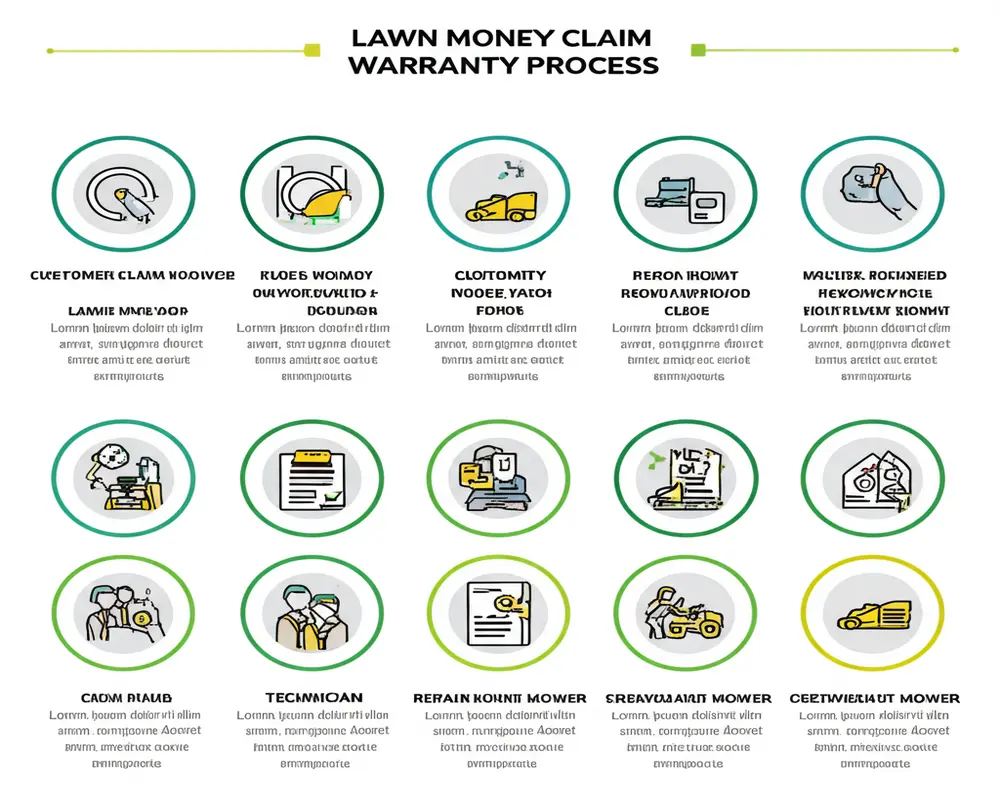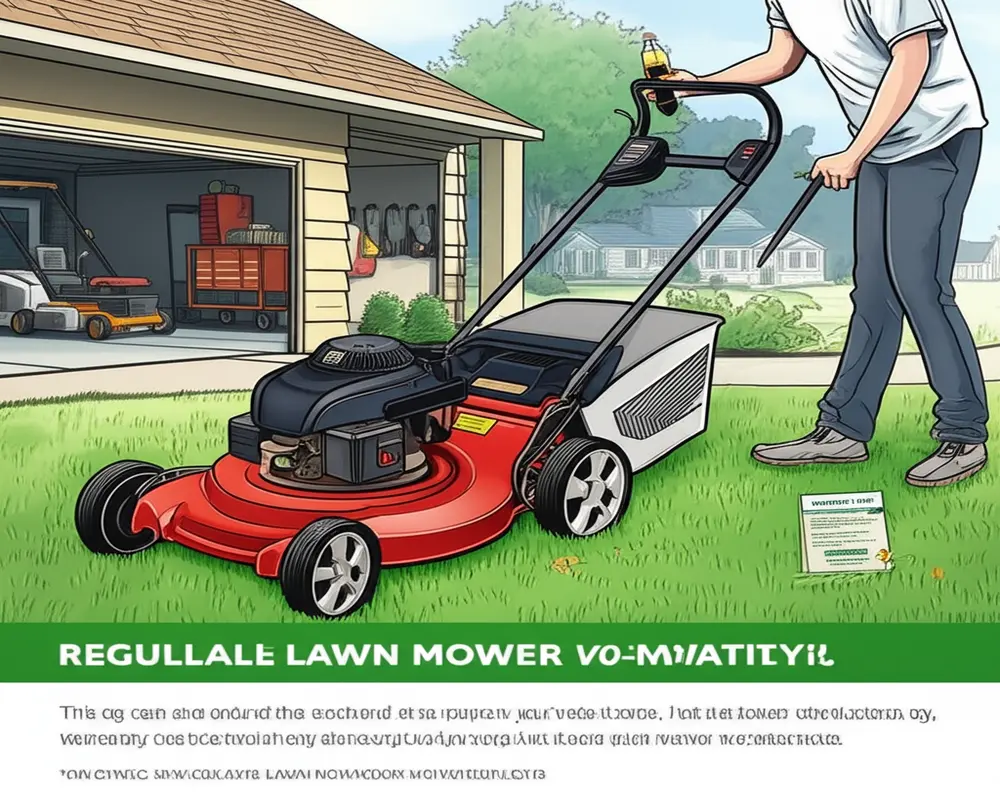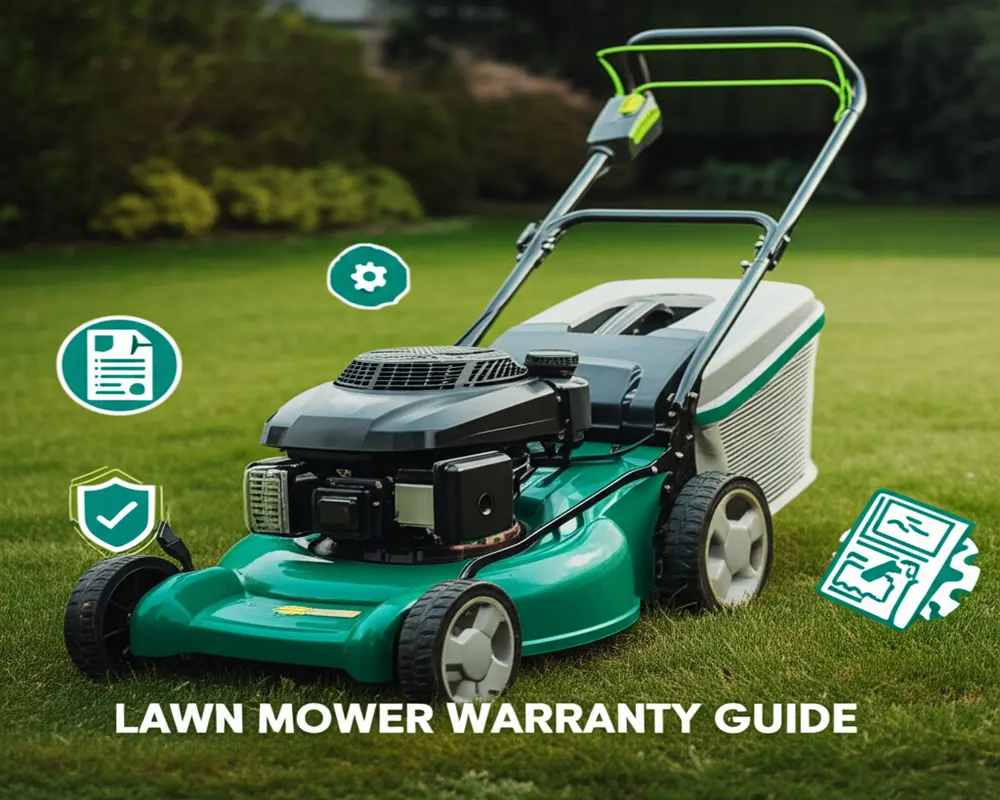The Ultimate Lawn Mower Warranty Guide: Protect Your Investment
Purchasing a lawn mower is a significant investment for homeowners and commercial users alike. Ensuring you understand your lawn mower warranty is essential to protect that investment and secure peace of mind. This guide offers a comprehensive overview of lawn mower warranties in 2025, explaining how to interpret your coverage, file claims, and maintain your mower to avoid voiding warranty protections.
Thank you for reading this post, don't forget to subscribe!What is a Lawn Mower Warranty? (The Basics)
A lawn mower warranty is a manufacturer’s or seller’s formal promise that your equipment will function as expected for a defined period. It covers repairs or replacements if defects in materials or workmanship arise during that time. Warranties are vital because they provide financial protection against unexpected breakdowns, ensuring your lawn mower remains reliable without extra repair costs.
Key terms to understand include:
- Warranty period: The length of time coverage applies, often ranging from one to several years.
- Coverage: What components and types of repairs the warranty will cover.
- Exclusions: Specific conditions or parts not covered, which can affect claims.
Types of Lawn Mower Warranties Explained
Understanding the different warranty types helps you know the scope of protection and what additional options exist.
Manufacturer Warranties
Limited Warranty: The most common type, this warranty covers certain parts and conditions, such as engine defects or frame issues, but excludes normal wear items and damage from misuse.
Full Warranty: Less common in lawn mowers, this provides broader coverage with fewer exclusions, sometimes including labor costs.
Retailer/Dealer Warranties
Some dealers offer their own warranties or service agreements, which may supplement manufacturer coverage. These can include perks like free tune-ups or extended service periods but vary widely by retailer.
Extended Warranties/Service Contracts
These are optional add-ons purchased separately to extend coverage beyond the standard warranty. They can be beneficial if you plan to keep the mower long-term but may come with higher costs and specific conditions.
Understanding Your Warranty Coverage: What’s Typically Included
Most lawn mower warranty policies cover key components essential to mower performance. Typically, these include:
- Engine parts such as the crankshaft, cylinder, and piston
- Transmission or drive system
- Cutting deck structure (excluding blades)
- Electrical components including ignition, starter, and wiring
- Frame and chassis
Coverage usually applies to defects in materials or workmanship but does not protect against regular wear and tear.
What’s NOT Covered: Common Warranty Exclusions
It is equally important to know what is excluded from your warranty to avoid surprises when filing claims. Common exclusions are:
- Wear and tear items like blades, belts, tires, spark plugs, filters, and batteries
- Damage caused by misuse, abuse, or using improper fuels
- Lack of routine maintenance as outlined in the owner’s manual
- Unauthorized repairs or modifications
- Environmental damage such as rust or corrosion
- Commercial use under a residential warranty
Residential vs. Commercial Warranties: Key Differences
Warranties differ based on intended use. Residential lawn mower warranties usually offer longer coverage since the mower is used less intensively. Commercial warranties are shorter, reflecting heavier use and higher demand on the equipment. It is crucial to verify which category your mower falls into, as using a residential mower commercially may void the warranty.
Crucial Step: Registering Your Lawn Mower for Warranty
Registering your lawn mower promptly after purchase is critical to activate your warranty and receive important notifications such as recalls. Registration can typically be done online, by mail, or through the dealer.
The registration form requires details including the model number, serial number, purchase date, dealer information, and your contact information.

Make sure to complete registration within the timeline specified by the manufacturer to ensure coverage.
Step-by-Step Guide: How to File a Lawn Mower Warranty Claim
When your mower experiences a problem covered by warranty, follow these steps:
- Clearly identify the issue with your mower.
- Review your warranty documentation for coverage details and claim procedures.
- Gather all necessary documents including proof of purchase, serial numbers, maintenance records, registration confirmation, and photos or videos of the issue.
- Contact the manufacturer or an authorized repair service to initiate the claim.
- Schedule and complete the inspection or repair as instructed.
- Follow up persistently if your claim faces delays or denials.

Being prepared, polite, and persistent can help ensure a smooth claim process.
Protecting Your Warranty: Actions to Avoid Voiding Coverage
Maintaining your lawn mower properly is essential to keep your warranty valid. Avoid the following to protect your coverage:
- Stick to the maintenance schedule recommended by the manufacturer.
- Use correct fuel and oils as specified in the owner’s manual.
- Only use original equipment manufacturer (OEM) parts for repairs.
- Avoid unauthorized modifications or repairs.
- Store the mower properly during off-seasons to prevent damage.
- Operate the mower correctly, avoiding overloading and collisions.
- Keep detailed records of all maintenance and repairs performed.

Common Lawn Mower Warranty FAQs
- Is the battery covered under warranty?
- Typically, batteries are considered wear items and are excluded from standard warranty coverage.
- What if I lose my purchase receipt?
- Proof of purchase is usually required for claims. Contact the dealer or manufacturer; some may accept alternative documentation or registration records.
- Does performing a self oil change void the warranty?
- No, as long as you follow the maintenance schedule and use recommended oil types, self-maintenance should not void your warranty.
- Is damage from hitting a rock covered?
- Damage caused by impacts or accidents is generally excluded from warranty coverage.
- Can I transfer the warranty if I sell the mower?
- Some warranties are transferable, but this depends on the manufacturer’s policy. Always check warranty terms.
- What if the dealer denies my claim?
- If you believe your claim has been wrongly denied, escalate the issue to the manufacturer’s customer service or seek third-party mediation.
- How do I find authorized service centers nearby?
- Manufacturer websites usually provide a locator tool for authorized service centers.
How to Locate Your Specific Brand’s Warranty Information
To find warranty details for your particular lawn mower brand, start by checking the owner’s manual. Most manufacturers also provide warranty information on their official websites, including customer service contacts and authorized dealer lists.
Authorized dealers and retailers can be valuable sources of warranty information and assistance. Key details to look for include warranty start dates, duration, exclusions, and the claim process.
Conclusion: Be an Informed Lawn Mower Owner
Understanding your lawn mower warranty equips you to make the most of your investment. Keeping thorough records, performing recommended maintenance, and knowing how to navigate claims will ensure your mower stays in top condition and that you are protected against defects and failures. Stay informed and proactive to enjoy a reliable, efficient lawn mower for years to come.
Disclaimer
This article provides general information on lawn mower warranties. Specific warranty terms vary by manufacturer and model. Always refer to your lawn mower’s official warranty documentation for precise coverage details and conditions.
Additional Resources
For further reading on lawn mower maintenance and troubleshooting, visit our detailed guides on lawn mower won’t start and hand cultivator buying guide.
For authoritative warranty advice, consult the Consumer Reports lawn mower warranty tips and the U.S. Consumer Product Safety Commission for safety standards.
Learn more about warranty policies in the industry at Lawn & Garden Retailer warranty information.

